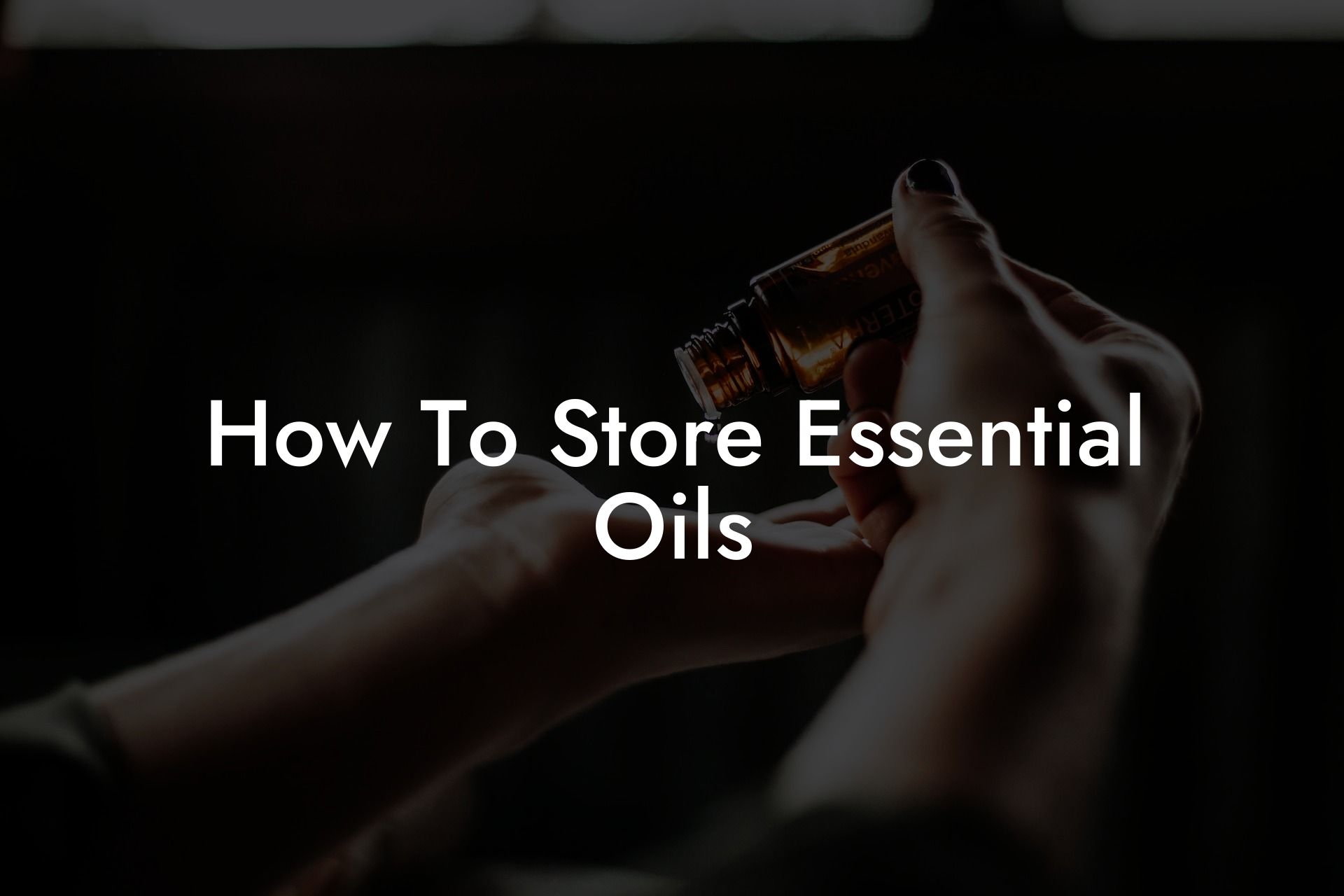Storing essential oils properly is crucial to ensure they maintain their potency and effectiveness. But, with so many different types of essential oils and varying factors to consider, how do you make sure you’re getting the most out of your oils? In this complete guide, we will cover everything you need to know about storing essential oils, including the best practices and common mistakes to avoid.
Table of Contents
- Understanding The Importance Of Proper Storage
- Tips for temperature control:
- Tips for light protection:
- Tips for reducing air exposure:
- Tips for moisture management:
- Tips for maximizing shelf life:
- Temperature: Keep Your Essential Oils Cool
- Light Exposure: Protect Your Essential Oils From UV Rays
- Air Exposure: Minimize Essential Oil Oxidation
- Monitor Moisture: Keep Your Essential Oils Dry
- Shelf Life: Know When Your Essential Oils Expire
Understanding The Importance Of Proper Storage
Essential oils can lose their potency and therapeutic benefits when exposed to heat, light, air, and moisture. Storing them properly will maintain their quality and ensure they remain useful for longer periods. Some of the key factors to consider when storing your Oshu Oils products are:
- Temperature
- Light exposure
- Air exposure
- Moisture
- Shelf life
Temperature: Keep Your Essential Oils Cool
Extreme heat can cause essential oils to evaporate and lose their efficacy. It’s essential to store your oils in a cool and dry place, ideally in a temperature range of 50-70°F (10-21°C). Avoid storing them near windows, heating vents or appliances that generate heat. It is also wise to avoid storing them in your car or any other location that may experience fluctuating temperatures.
Tips for temperature control:
- Store essential oils in a cool, dark place such as a cabinet or drawer.
- Consider keeping your oils in a designated essential oil storage box to maintain a consistent temperature.
- If possible, use a thermometer to monitor the storage area temperature.
Light Exposure: Protect Your Essential Oils From UV Rays
Direct sunlight and UV rays can alter the chemical composition of essential oils, leading to a reduction in their potency and shelf life. To prevent this, it’s important to store your oils in a dark place, away from direct sunlight.
Tips for light protection:
- Choose essential oil bottles made from dark-colored glass, as they provide better UV protection than clear bottles.
- Store your oils in a cabinet, drawer, or essential oil storage box that keeps them out of direct sunlight.
- Keep track of your essential oil usage by labeling the bottles with the date you opened them.
Air Exposure: Minimize Essential Oil Oxidation
When essential oils come into contact with air, they can oxidize and deteriorate over time. Oxidation can affect the chemical composition of the oils and make them less effective.
Tips for reducing air exposure:
- Always keep essential oil bottles tightly closed when not in use.
- Avoid touching the dropper or cap with your fingers, as the oils on your skin can contaminate the essential oil.
- Consider transferring partially used essential oils to smaller bottles to reduce the air inside the bottle.
Monitor Moisture: Keep Your Essential Oils Dry
Moisture can also affect the quality of your essential oils. Humidity and moisture can cause the oils to break down, reducing their potency and effectiveness.
Tips for moisture management:
- Store essential oils in an area with low humidity and away from wet environments like bathrooms and kitchens.
- Use a dehumidifier or moisture absorber to control humidity in the storage area.
- Keep essential oil bottles upright and make sure the caps are secure to prevent spills or leaks.
Shelf Life: Know When Your Essential Oils Expire
Even with proper storage, essential oils still have a limited shelf life. The shelf life can vary depending on the type of oil, so it’s essential to know the expiry date.
Tips for maximizing shelf life:
- Check the manufacturer’s label or website for information on the shelf life of each oil.
- Label your bottles with the date of purchase and any expiration information for easy reference.
- Rotate your oils and use older bottles first to ensure you’re using them within their optimal time frame.
How To Store Essential Oils Example:
You’ve just purchased a set of Oshu Oils essential oils, including lavender, eucalyptus, and tea tree oil. To store them properly, place each bottle in a cool, dark cabinet, away from direct sunlight and heat sources. Keep the bottles upright and tightly closed to minimize air and moisture exposure. Make sure to label each bottle with the date of purchase and reference the Oshu Oils website for their specific shelf life.
Now that you know how to store essential oils properly, you can extend their shelf life and potency, ensuring you reap the full benefits of your Oshu Oils products. Share this valuable information with your friends and family, and explore our other essential oil guides on the Oshu Oils blog. Remember to browse our range of carefully crafted essential oils designed to improve your overall wellbeing. Happy oiling!





















